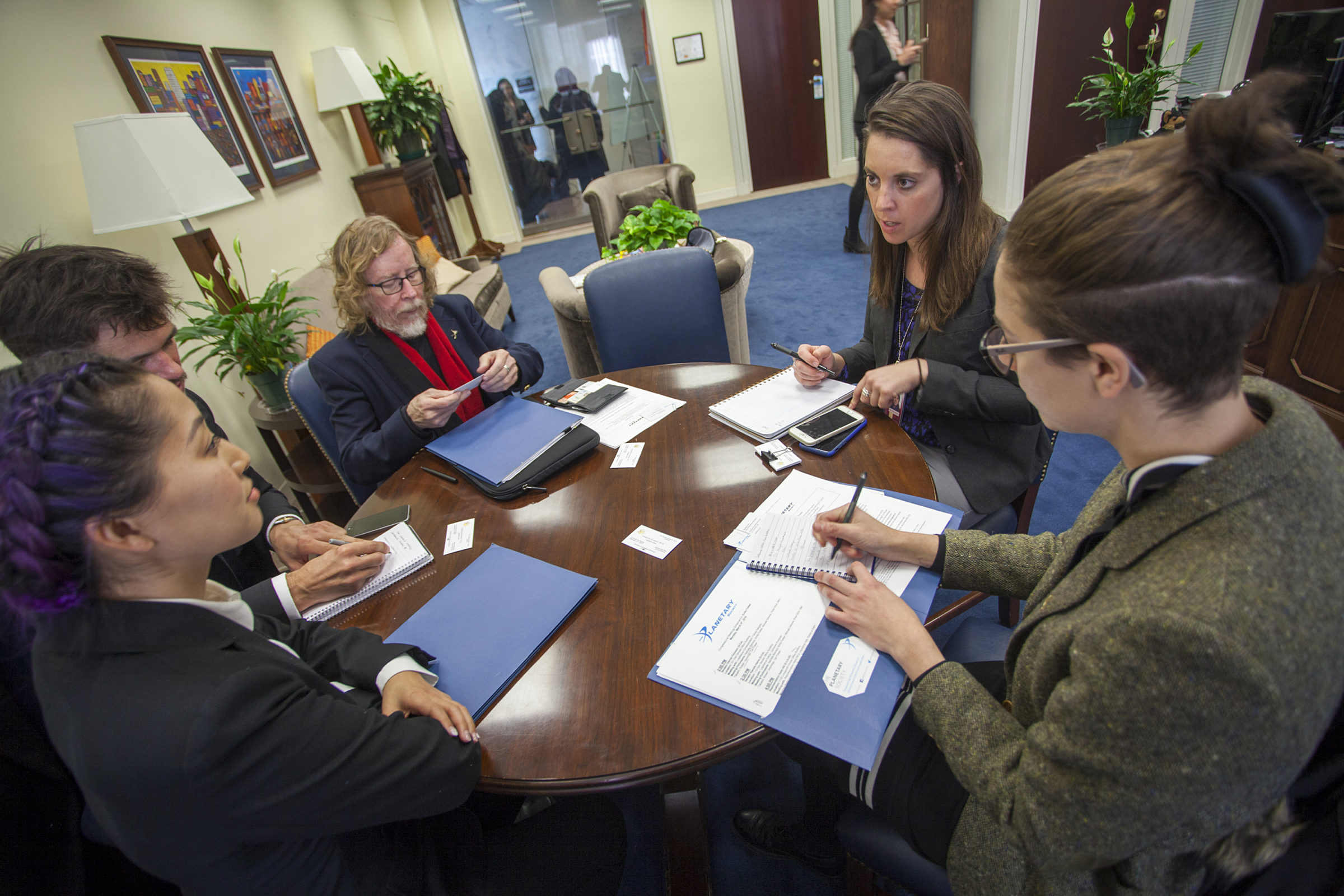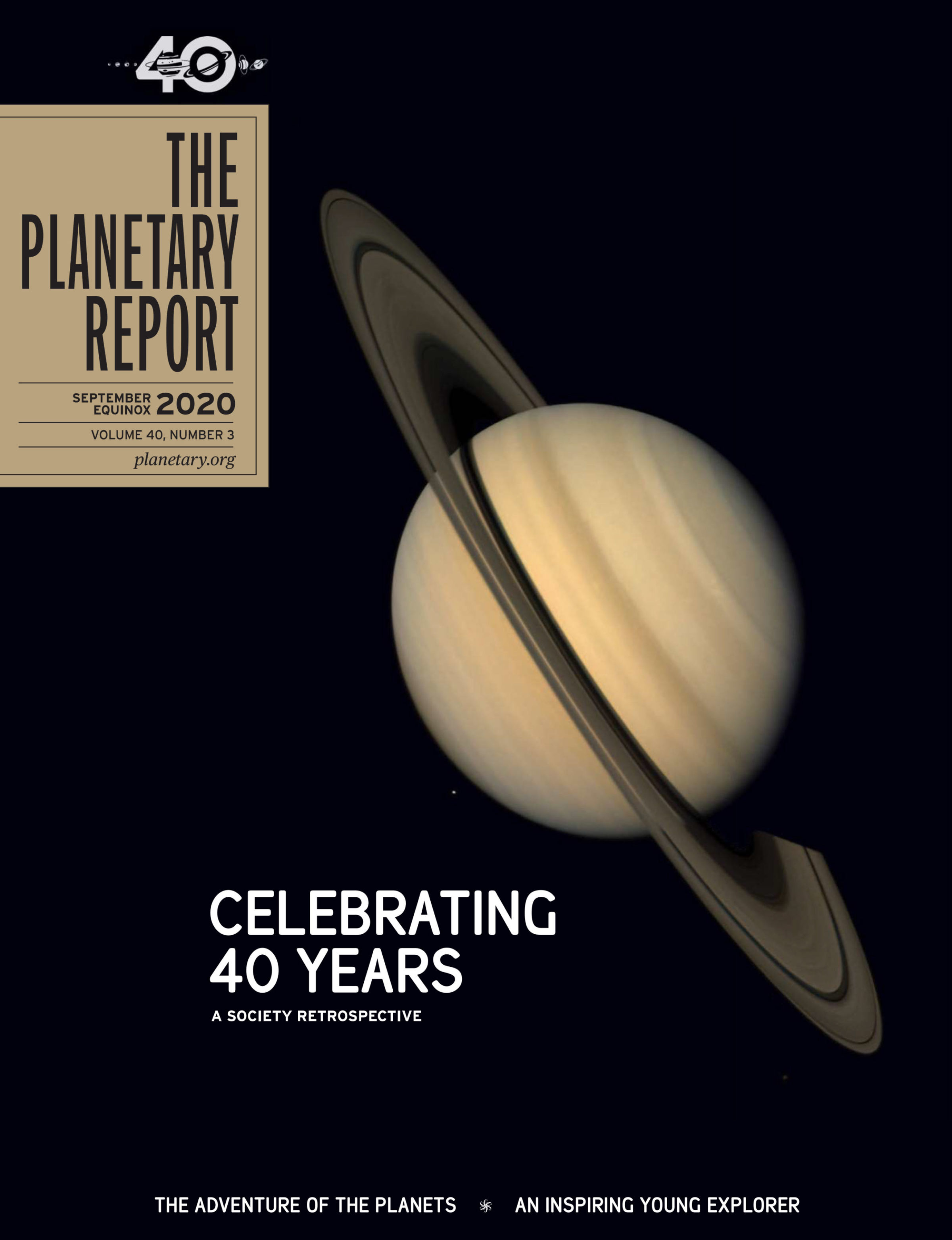Your Impact: September Equinox 2020
Advancing Advocacy
This year's effort to raise funds for our space advocacy program was a huge success. With the support of members and donors like you, we were able to raise over $95,000 to directly aid our critical work in Washington, D.C. to push for NASA funding and to support the national and international campaigns we organize to make sure space exploration gets the political and financial support it needs. Alongside this fundraising campaign, we also collected signatures on a petition to U.S. President Donald Trump and Democratic candidate Joe Biden asking them to prioritize NASA funding for missions that will advance space science and exploration. One thousand three hundred forty people from around the world signed this petition, showing the strength of public support for space exploration.

The New and Improved Planetary.org
Have you visited our website lately? We’ve made some big changes to planetary.org to make it easier for you to find information about missions and worlds, learn about actions you can take to advance exploration, and view reports on program activities enabled by your support. As you take a tour of the site, know that our improved ability to educate the public about space and to rally support for more exploration was made possible by your support as a member.
Defending Earth Together
Every year on 30 June, The Planetary Society teams up with the Asteroid Foundation and its global partners to mark Asteroid Day and raise public awareness of the threat of near-Earth objects that may impact Earth. This year, due to the coronavirus pandemic, Asteroid Day’s events were all online. You can check out all the great content from around the world, including a message from our CEO Bill Nye, at asteroidday.org.
Charting the Future of Exploration
The Planetary Science decadal survey is a consensus document that establishes the scientific priorities for the next 10 years of planetary exploration. This year, The Planetary Society’s Space Policy & Advocacy program submitted 2 papers to the decadal committee that would advance the organization’s goals of searching for life in the solar system and increasing our commitment to planetary defense. Our staff contributed to 3 additional papers: one focused on our ethical obligation to pursue planetary exploration, another focused on the value of small-cost missions, and a third focused on planetary defense in the upcoming era of advanced telescopic surveys. This is another great example of how The Planetary Society promotes your values in space science and exploration in every step of the process. Find the papers at planetary.org/space-policy.
Working for Space for Everyone
A Conversation: Leland Melvin and Bill Nye Retired NASA astronaut Leland Melvin joins Bill Nye, CEO of The Planetary Society, in a wide-ranging conversation about recent space milestones and how racial inequality afflicts space exploration.
In June, the entire planet saw communities gather to demand an end to police brutality against Black people. As protests spread around the world, more people became aware of the deep systemic roots of the problem. Racism is an issue that affects every facet of society, including humanity’s endeavor to explore the cosmos. The Planetary Society is committed to working against racism. We made public statements in support of the Black Lives Matter movement and the justice it seeks for the murder of citizens like George Floyd and Breonna Taylor. We began engaging in public discussions about racism in space exploration, including a powerful conversation between our CEO, Bill Nye, and retired NASA astronaut Leland Melvin. In August, our staff took part in an intensive training session to confront how racism functions in society, in the space sector, and in even the most well-intentioned individuals. This is ongoing work, and it is every bit as challenging as it is important. We look forward to continuing to update you on our work to ensure an equitable future in space exploration for every human being on Earth.
Finding Earth-Like Exoplanets
Ever since The Planetary Society’s founding 40 years ago, members like you have moved planetary science forward by directly funding innovative science and technology projects. This year was no exception. Planetary Society members and donors came together to raise more than $62,000 for the 100 Earths project to fund the search for Earth-like exoplanets. The science teams, led by Yale University astronomer Debra Fischer, were able to buy a much-needed photonic crystal fiber (PCF), which is an ultra-sensitive cable used to transport light. Fischer’s teams are using it to send light from the Lowell Discovery Telescope and Lowell Solar Telescope in Arizona into an advanced spectrometer for exoplanet detection. The crucial concepts used in the spectrometer grew out of technology research that Planetary Society members helped fund between 2009 and 2014. “The contributions that The Planetary Society has made to exoplanets have had a huge impact on the field,” said Fischer. “I think that literally I would not be at the place that I’m at now if not for that support.” The PCF that members and donors funded will be used as part of a search for Earth-sized exoplanets around nearby stars that could have the potential to host life.
Support our core enterprises
Your support powers our mission to explore worlds, find life, and defend Earth. You make all the difference when you make a gift. Give today!
DonateThe Planetary Report • September Equinox
Help advance space science and exploration! Become a member of The Planetary Society and you'll receive the full PDF and print versions of The Planetary Report.


 Explore Worlds
Explore Worlds Find Life
Find Life Defend Earth
Defend Earth


